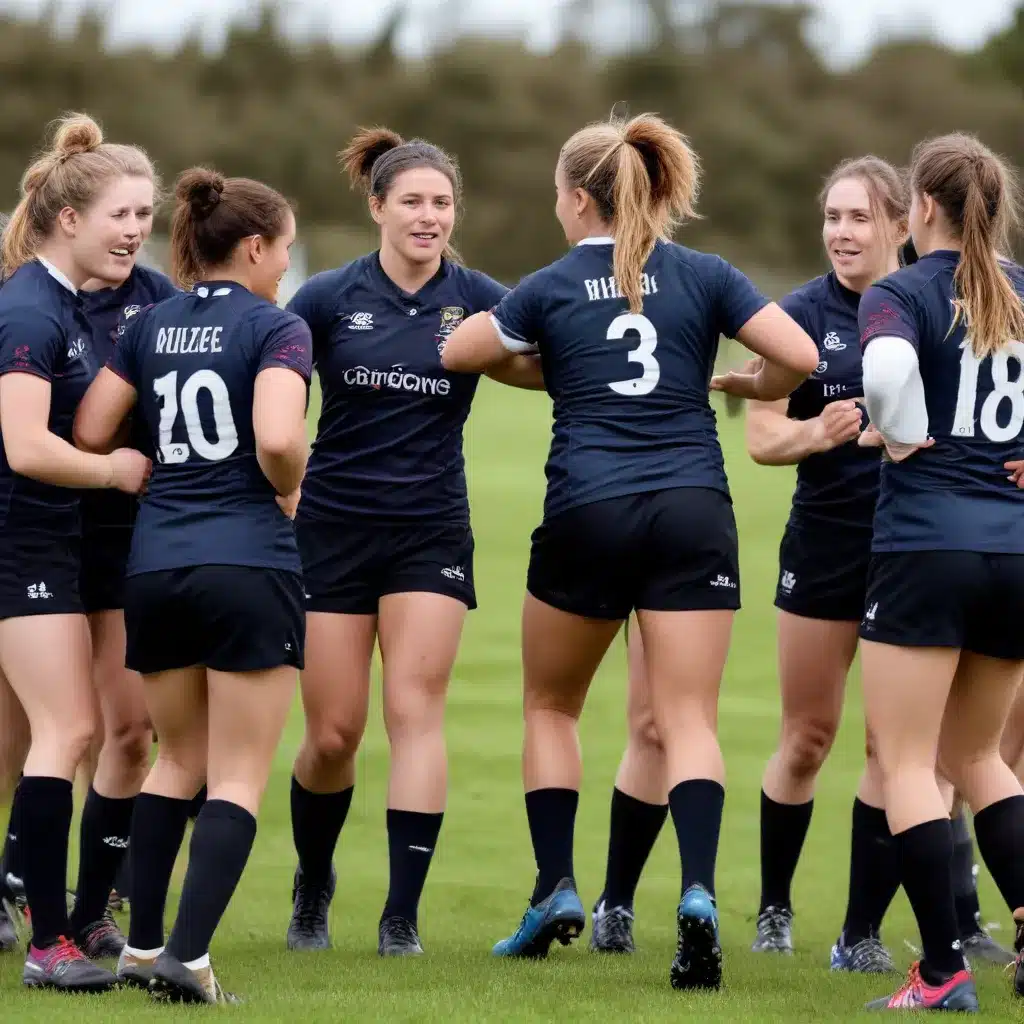
The Vital Role of Women’s Rugby Coaches
Women’s rugby has experienced tremendous growth in recent years, capturing the attention of athletes, fans, and communities worldwide. As the sport continues to evolve, the need for dedicated and passionate coaches to inspire the next generation has never been more crucial.
Coaches play a pivotal role in shaping the future of women’s rugby. They are the driving force behind player development, team strategy, and cultivating a positive, inclusive culture. However, the representation of women in coaching positions remains disproportionately low compared to their male counterparts. This disparity presents both challenges and opportunities as we work to empower female coaches and ensure they have the support and resources needed to thrive.
Overcoming Barriers and Biases
One of the primary obstacles faced by aspiring women’s rugby coaches is the persistence of gender-based biases and stereotypes. Despite the remarkable achievements of female athletes, the sports industry has historically been dominated by men, creating a perception that coaching is a male-centric profession. This perception, coupled with the lack of visible role models and mentorship opportunities, can deter many talented women from pursuing coaching careers.
“It’s very different to coach a team, a player that isn’t paid to play the sport,” said Tony Roulhac, women’s rugby assistant head coach. “They’re taking time and money out of their day to be in this club, they don’t get the same types of support as a varsity athlete.”
Addressing these biases and creating a more inclusive environment for women’s rugby coaches is crucial. Initiatives such as targeted training programs, mentorship schemes, and networking events can help build confidence, develop technical skills, and foster a supportive community. By empowering women to take on coaching roles and demonstrating their capabilities, we can challenge the status quo and inspire the next generation of leaders.
The Power of Mentorship and Role Models
One of the most effective ways to encourage women to pursue coaching in women’s rugby is through the power of mentorship and role models. Experienced coaches who have navigated the challenges and achieved success can provide invaluable guidance and support to aspiring coaches.
“Saying ‘yes’ to one person changed the entire course of my life in terms of where I live and what I do. It’s had a massive impact, and so in that regard, I hope I can inspire girls in some capacity to get into rugby,” said Maggie Cogger-Orr, a rising rugby referee in New Zealand.
Initiatives like the Women into High Performance Coaching program, run by the Rugby Football League in the UK, have proven successful in nurturing and empowering female coaches. By connecting aspiring coaches with seasoned professionals, these programs foster personal growth, knowledge sharing, and the development of invaluable coaching skills.
“Lindsay is a huge champion of the girls’ and women’s game, a leading former player herself and a volunteer. The RFL has supported Lindsay to achieve UKCC Level 3 coaching qualification. This has involved 1-1 tutorials and session observations. She produced a very high standard of written and practical work. She is one of a very small number of women in RL with the Level 3 qualification,” stated the RFL President, Andy Burnham.
Building a Supportive Network
Beyond mentorship, the creation of a strong, supportive network for women’s rugby coaches is essential. Coaching associations, conferences, and peer-to-peer support groups can provide a platform for collaboration, skill-sharing, and professional development.
“A group of young women who knew they wanted rugby to happen, they knew that this could be something at San Diego State,” said Tony Roulhac, reflecting on the rapid rise of the SDSU women’s rugby team. “They did that almost knowing they were doing this for the next group coming in.”
By fostering a sense of community and mutual support, these networks can help women’s rugby coaches overcome the unique challenges they face, from balancing coaching responsibilities with personal commitments to navigating the intricacies of player development and team management.
Inspiring the Next Generation
As more women step into coaching roles, their stories and achievements will serve as powerful inspiration for the next generation of aspiring coaches. Highlighting successful role models, empowering young women to pursue their coaching aspirations, and cultivating a culture of encouragement and support will be crucial in driving the continued growth and success of women’s rugby.
“I want people to realize that you can literally look however, you can be the smallest person ever, you could be the biggest person ever, there’s always a spot for you in rugby,” said Megan Harris, team president of the SDSU women’s rugby club.
By investing in the development of women’s rugby coaches, we can create a ripple effect that resonates throughout the sport, inspiring young athletes to not only excel on the field but also lead the way as the coaches and role models of the future.
Embracing the Momentum of Women’s Rugby
The upcoming years will bring a unique opportunity to showcase the talent and passion of women’s rugby on a global stage. With the Rugby World Cup, the Olympics, and the IWG World Conference on Women and Sport all taking place in the near future, the spotlight will shine brightly on the sport and its dedicated coaches.
“It’s an exciting time to be a woman in sport in the era of all of these international events coming to our shores,” said Maggie Cogger-Orr. “And what role modelling it can have for young women of all backgrounds and types to see what they can be in all of those sports.”
As the Aberdeenshire RFC community, we have a crucial role to play in nurturing the next generation of women’s rugby coaches. By providing mentorship, educational opportunities, and a supportive network, we can empower aspiring coaches to unlock their full potential and inspire the future of our beloved sport.
Join us in this journey as we work together to foster the growth and development of women’s rugby in our community and beyond.
